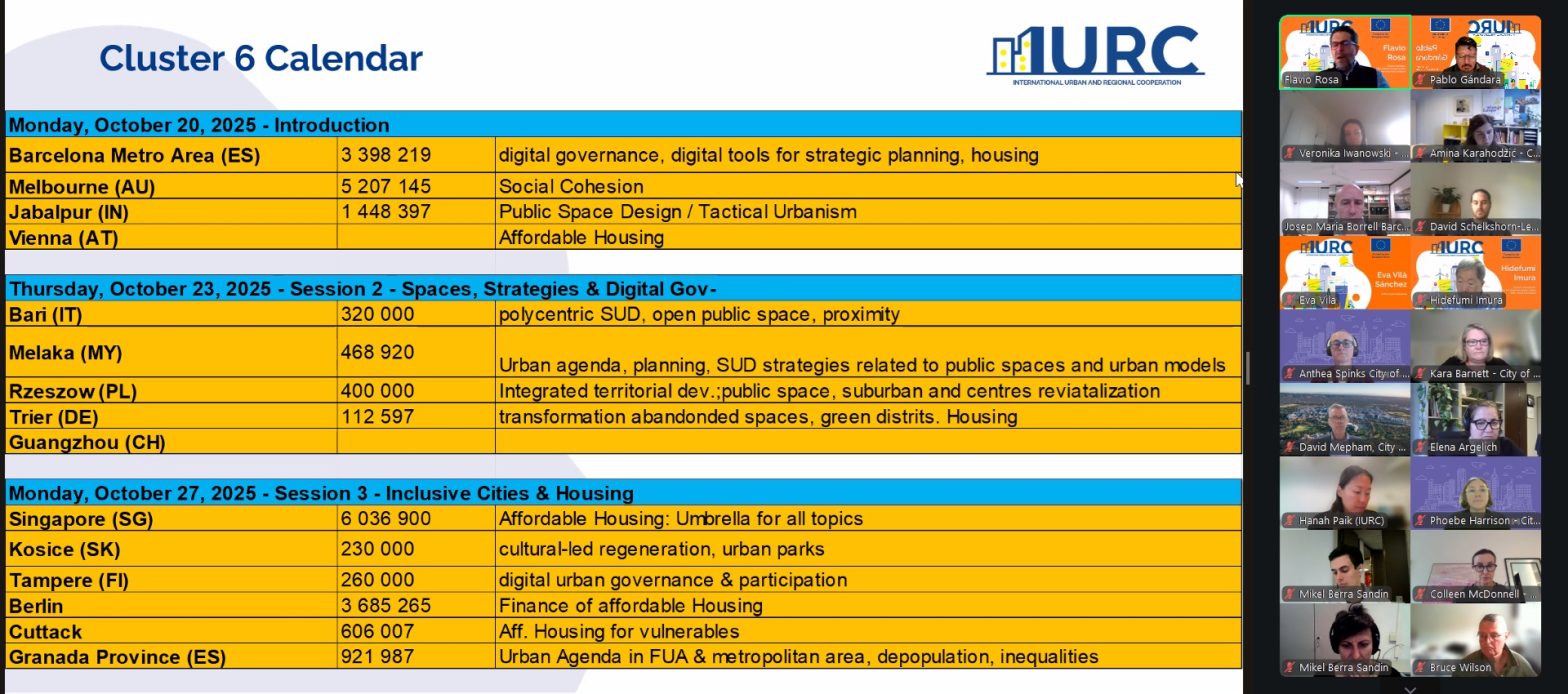On 20 October 2025, the International Urban and Regional Cooperation (IURC) programme launched its Urban Regeneration & Social Cohesion (Cluster 6) deep-dive series with an online session gathering 59 participants from 14 cities across Europe, India, Singapore and Australia. The meeting provided a comparative look at how cities are addressing growing pressures around affordable housing, population change, spatial inequality and the social dimensions of urban transformation.
Opening the session, Flavio underscored the importance of cross-regional learning and highlighted the European Commission’s Urban Compass as a shared reference for integrated urban development. The webinar featured four city presentations showcasing diverse approaches to social housing, neighbourhood revitalisation and inclusive growth.
Barcelona (Spain): Long-Term Social Housing Through Design, Durability and Data
Elena and Josep from Barcelona’s Metropolitan Institute of Land Development and Property Management (IMPSOL) presented the metropolitan area’s innovative model for sustainable social housing. IMPSOL has delivered 6,000 dwellings in 127 developments, guided by a philosophy of 150-year building lifespans, bioclimatic design, energy efficiency and architectural competitions to guarantee high-quality, future-proofed homes. Barcelona also highlighted its growing interest in digitalisation, including AI and data governance, to strengthen planning, administration and social housing allocation processes.
Melbourne (Australia): Social Cohesion in a Fast-Growing, Diverse City
Representing Melbourne, Anthea described the city’s rapid demographic growth, its high proportion of international students, and emerging challenges around diversity, safety and social connection. Melbourne outlined its place-based approach in 11 neighbourhoods, work with the Multicultural Hub to support migrants and asylum seekers, and ongoing efforts to strengthen social cohesion in dense urban communities. The city also shared updates on affordable housing initiatives, including the “Make Room” transitional housing project and the broader Victoria housing system, explained by Phoebe.
Jabalpur (India): Regeneration Through Conservation, Infrastructure and Community Projects
Vatsal provided an overview of Jabalpur’s major development and conservation efforts over the past decade. The city has advanced infrastructure upgrades, waste-management improvements and biodiversity programmes, including smart lighting initiatives that reduce emissions and the reclamation and greening of 54 acres in Madan Mahal, where 20,000 residents were successfully resettled. Several projects were supported by academic expertise from the local Agriculture University, illustrating the value of knowledge partnerships in urban transformation.
Vienna (Austria): Social Mix, Housing Decarbonisation and Future-Proof Neighbourhoods
David and Amina from Vienna’s District Planning and Land Use Department shared the city’s priorities in managing population growth, intergenerational needs and decarbonising its extensive social housing stock. Vienna introduced a new tool for fostering social mix in large developments and discussed plans for transforming post-war residential complexes. The city expressed interest in peer learning on cross-disciplinary collaboration, integrating productive uses into neighbourhoods and creating resilient, future-ready communities.
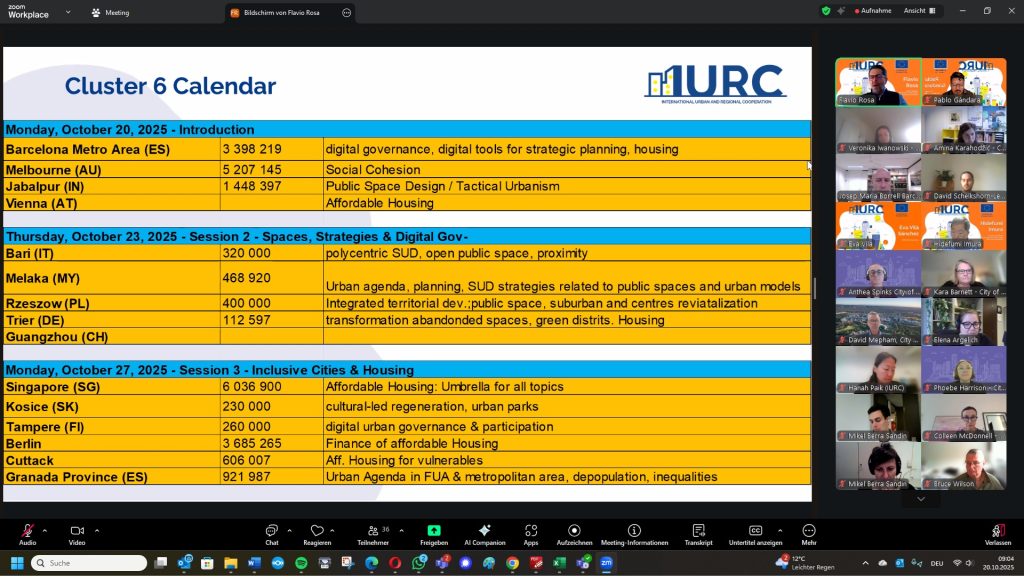
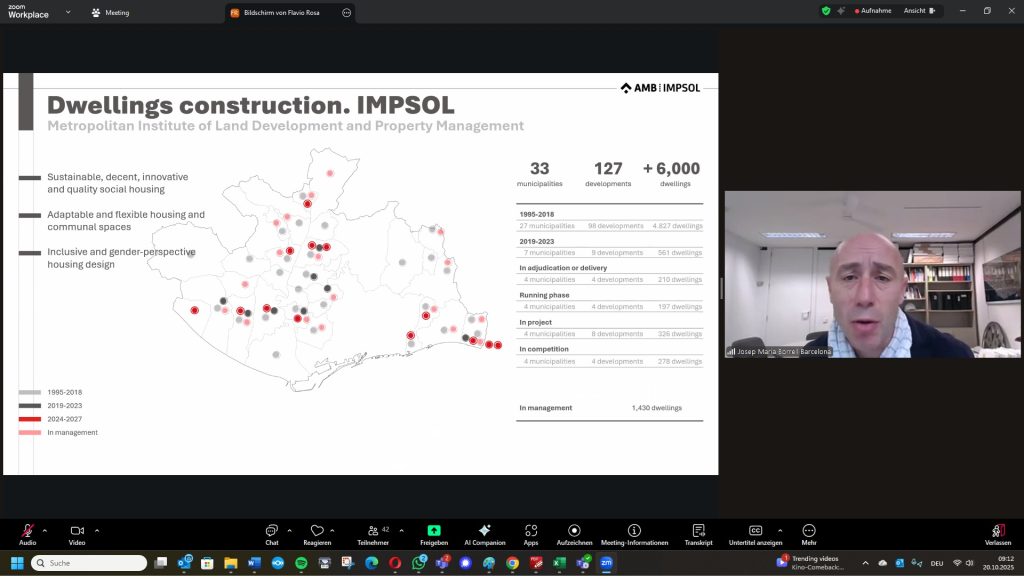
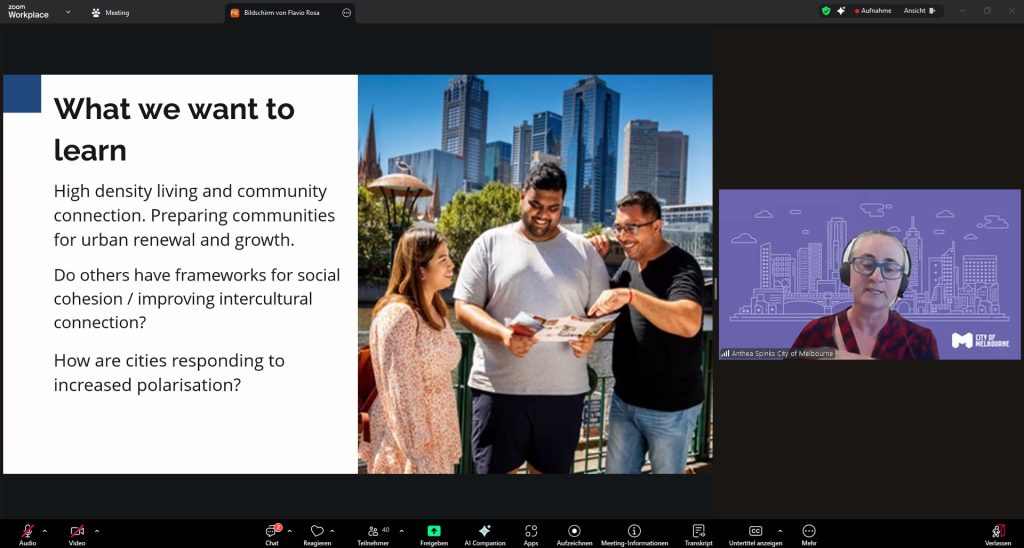
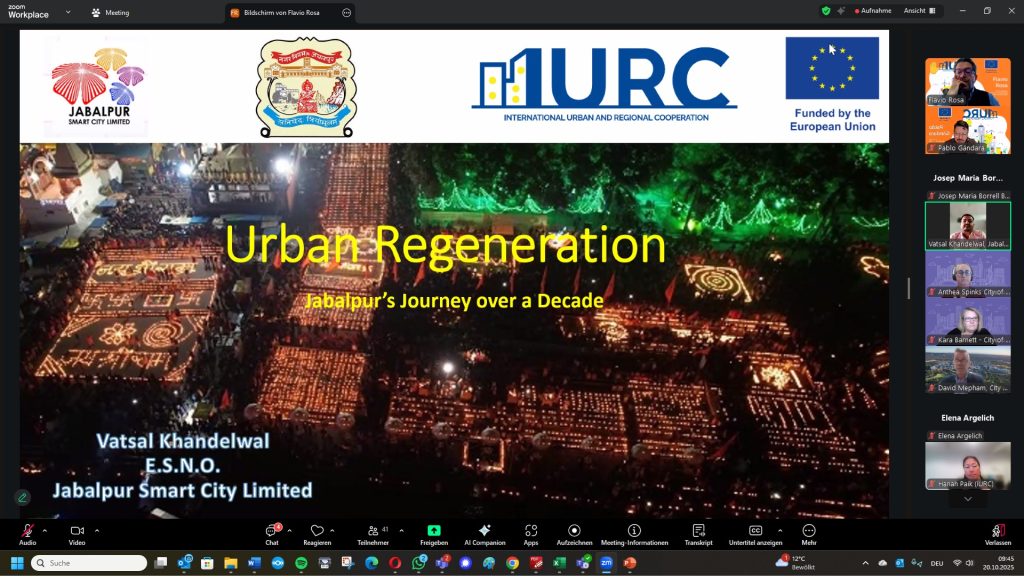
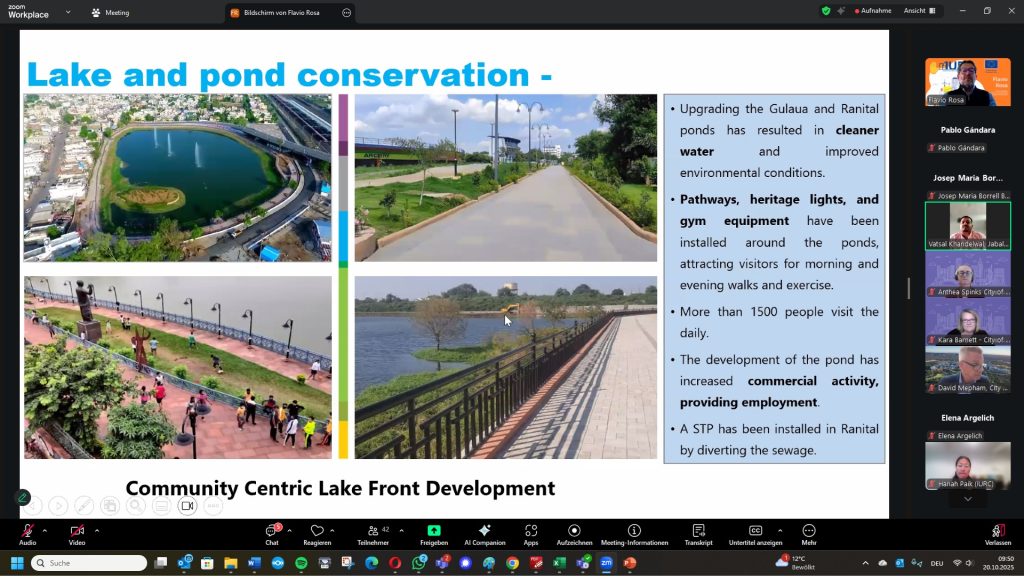
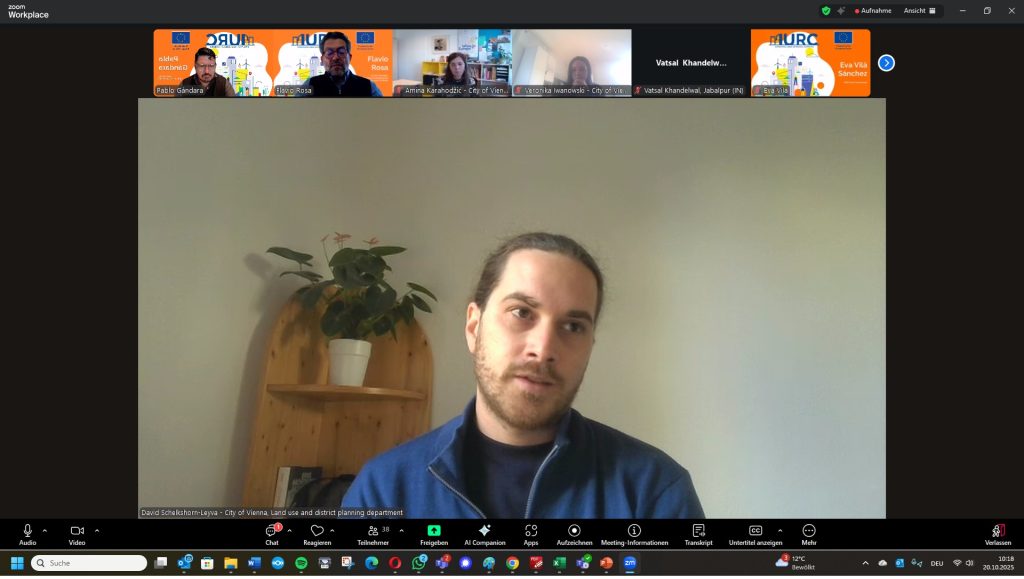
Disclaimer: This website news has been elaborated with AI (Chat GPT/Zoom) support.
